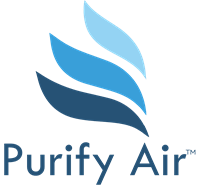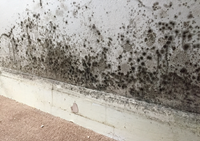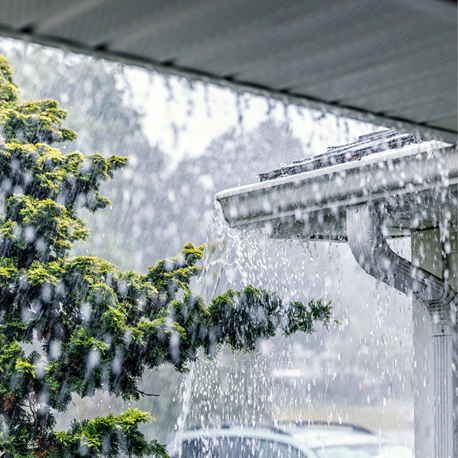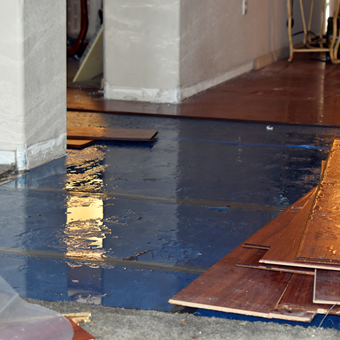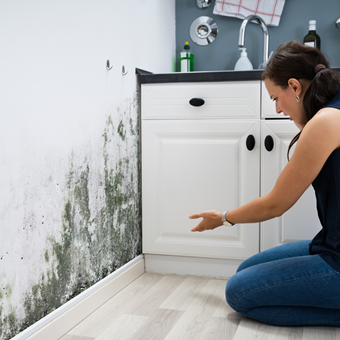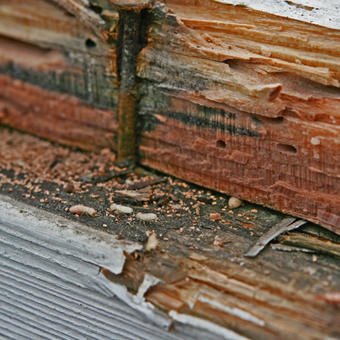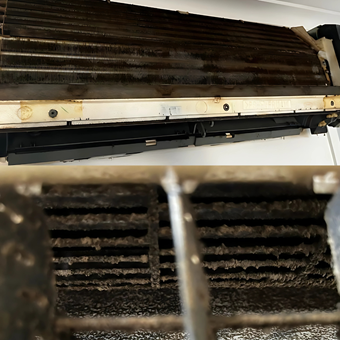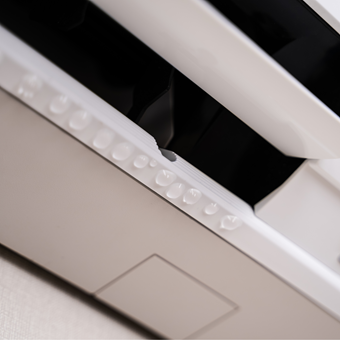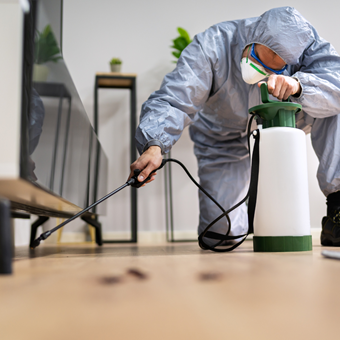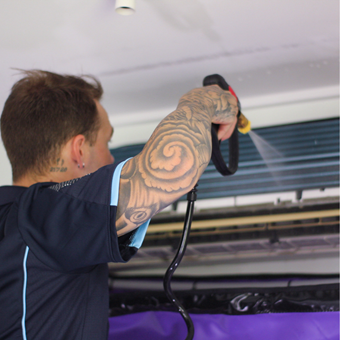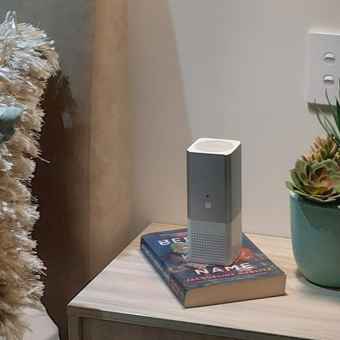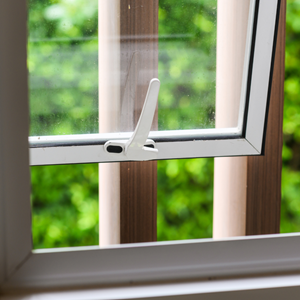The Impact of Constant Rain and Humidity on Homes, Health and Air Conditioning: Treatment and Prevention
Australia’s climate, particularly in coastal and tropical regions, often subjects homes and buildings to persistent rain and high humidity. While the cool, wet conditions may be welcome during hot seasons, the long-term effects of moisture can cause significant damage to both homes and air conditioning systems. Understanding these impacts — and how to treat and prevent them — is essential to protecting property, health, and comfort.
Effects of Constant Rain and Humidity on Homes
Structural Damage
When rain is frequent and the air remains moist, excess water can penetrate building materials. Poor drainage, blocked gutters, or roof leaks can allow water to seep into walls, ceilings, and foundations. Over time, this can lead to:
- Wood rot in structural elements and flooring
- Damp or water leaks coursing crumbling plaster or paint bubbling on walls
- Weakened foundations due to water pooling or soil shifting
These issues compromise the integrity of a home, often requiring expensive repairs if left unchecked.
Mould and Mildew Growth
Humidity provides an ideal breeding ground for mould and mildew. These fungi thrive in moist environments such as:
- Bathrooms, bedrooms and kitchens
- Basements or crawlspaces
- Behind walls and under flooring
- Inside air conditioning
Mould not only damages and stains surfaces and possessions but also poses a serious health hazard, especially for those with allergies, asthma, or respiratory issues.
Impact of Humidity and Moisture on Air Conditioning Systems
Air conditioning systems are designed to regulate temperature and reduce humidity. However, constant exposure to high moisture levels can impair their performance and lead to damage.
Clogged Filters and Coils
Humidity leads to excess moisture in the air, which your AC must remove. Over time, this causes condensation to build up on the evaporator coils. If not regularly cleaned, the coils become coated in dirt, mould, and biofilm, reducing efficiency and cooling power. Clogged filters and coils also lead to:
- Reduced airflow
- Increased energy use
- Water leaks
- Risk of system failure
Mould and Bacteria in the Unit
Air conditioning systems, particularly ducted, cassette and split units, can harbour mould and bacteria if not maintained properly. Condensation inside the unit or drain pans provides a moist environment perfect for microbial growth. This can result in:
- Foul odours (commonly referred to as “dirty sock syndrome”)
- Dispersal of airborne contaminants throughout the home
- Potential health risks for occupants
Water Damage and Leaks
If the drain line becomes blocked or overflows due to excess condensation, dirt/dust/dander and insect build up, water can leak inside the home. This not only damages ceilings, walls, furniture, electrical appliances, art work, paint and flooring but also promotes further mould growth.
Treatment Strategies for Homes
- Identify and Fix Leaks
- Regularly inspect roofs, windows, walls, and plumbing for leaks
- Seal gaps or cracks with weather-resistant materials
- Repair damaged gutters and ensure proper drainage away from the house
- Improve Ventilation
- Use exhaust fans in kitchens, bathrooms, and laundry areas
- Install vents or windows in closed-off areas like attics or basements
- Consider mechanical ventilation systems to improve airflow
- Dehumidifiers
- Use portable or whole-house dehumidifiers to remove excess moisture from indoor air
- Keep humidity levels between 30% and 50% for optimal comfort and health
Professional Mould Remediation
-
Clean small areas with vinegar, baking soda, or mould-killing cleaners
- For larger infestations, engage professional mould remediation services
- Replace or fully dry water-damaged materials like carpet or insulation if contaminated
Treatment Strategies For Air Conditioning Systems
- Regular Cleaning
- Clean filters monthly during periods of high humidity
- Wipe down and sanitise indoor units and vents
- Clear out and disinfect the drip pan and drain lines to prevent water build-up
- Professional Deep Cleaning
- Have your system professionally cleaned at least once a year, or more often in humid climates
- Professional services will clean coils, fans, and internal parts to eliminate biofilm and mould
- Use a UV Light air purifier in rooms or AC systems
- Ultraviolet lights inside the system can kill mould and bacteria before they spread.
- These are especially useful in ducted systems where air is recirculated.
- Schedule Regular Maintenance
- Arrange annual inspections with certified technicians to detect wear, corrosion, or leaks early.
- Upgrade or Replace Old Units
- Older air conditioning systems may not cope well with humidity.
- Modern units offer better dehumidification, energy efficiency, and indoor air quality features.
Prevention Strategies
In the Home
- Install a rainwater management system such as rainwater tanks or diverters to reduce water accumulation near the house
- Choose water-resistant materials like vinyl flooring, treated timber, or moisture-resistant drywall in vulnerable areas
- Landscape with drainage in mind by grading soil away from the foundation and avoiding water-retaining plants near walls
- Use moisture barriers in basements or crawlspaces to reduce rising damp
- Minimise dust build-up on all surfaces including walls, furniture, carpets and behind furniture and appliances
- Provide adequate ventilation
- Turn off the tap: fix leaking roofs, internal water pipes etc. If the water or moisture source doesn’t stop then nor does the mould
For Air Conditioning
- Set the right temperature and humidity controls. Many modern systems allow for humidity settings. Aim for a dry, comfortable range. (22 – 24 degrees)
- Avoid setting the temperature too low, as this can cause coils to freeze and lead to excess condensation
- Install smart thermostats or sensors to monitor indoor air quality and humidity levels
- Educate household members on maintaining cleanliness and awareness around AC use and indoor moisture
Constant rain and humidity can silently wreak havoc on homes and air conditioning systems if left unchecked. From structural deterioration and mould outbreaks to compromised indoor air and system breakdowns, moisture is a formidable foe. Fortunately, with proper treatment and proactive prevention, homeowners can safeguard their properties and enjoy cleaner, healthier air.
Whether it’s through sealing leaks, investing in dehumidification, or scheduling professional aircon cleaning, taking action today will prevent costly problems tomorrow — Always seek professional advice and services if or when required
Book Your Air Conditioner Cleaning Today!
